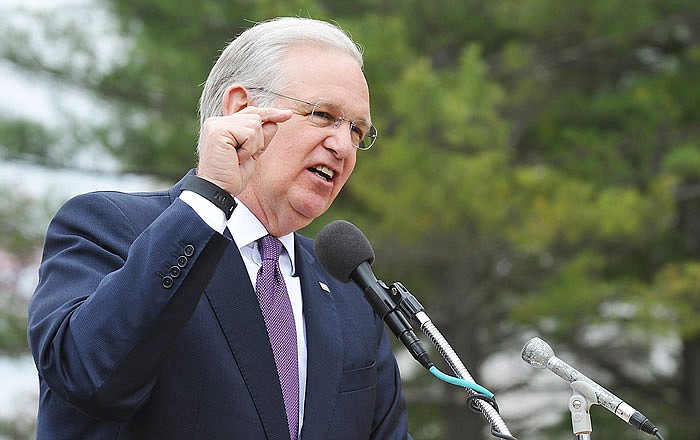Missouri's Republican-led Legislature this year passed tax breaks for goods and services ranging from wheelchairs to yoga classes, setting up a potential showdown with Democratic Gov. Jay Nixon over what he said could lead to a hole in the state budget.
Nixon said the tax cuts could cost as much as $80 million, but backers say Nixon's cost estimate is overblown. Legislative researchers project the tax breaks cited by the governor will cost closer to $22 million in the fiscal year that begins July 1.
Nixon said he will closely review the costs and take "actions necessary to keep the budget in balance." Nixon could veto the tax breaks or block other state spending to compensate.
Lawmakers passed the breaks after approving a $27.3 billion spending plan.
"I just wish they wouldn't come back the week after we pass the budget and give away special interest tax breaks and put me as the governor - or whoever the governor is - in a situation of having to actually balance the budget," Nixon said.
Nixon's term will end in January, and he's barred by term limits from seeking re-election. State budget director Dan Haug said it's still too early to know whether freezing spending for some programs will be necessary next fiscal year.
The biggest disagreement between Nixon and legislative researchers is over an income tax deduction for federal agricultural disaster payments. It applies to federal money given to farmers for losses from natural disasters such as floods or drought.
Nixon put the price tag at $51.5 million for next fiscal year, while legislative researchers said it will cost up to about $12 million.
The legislative report says payments to Missouri in the 2014 fiscal year, the first year the tax break would apply and the year Nixon's administration used to calculate costs for the next two years, "greatly exceeded" payments made the previous year. Researchers predicted those high payments "are not likely to be repeated in the near term."
Executive Vice President Mike Deering, of the Missouri Cattlemen's Association, which pushed for the tax deductions for agricultural disaster payments, said the high 2014 payments are a result of delayed funding for farmers after a 2012 drought hit Missouri and other Midwestern states. He questioned the administration's price estimate.
Lawmakers had argued the costs to the state are justified in the interest of helping taxpayers.
Sen. Wayne Wallingford, a Cape Girardeau Republican, sponsored an income tax deduction for money earned during active military duty that's projected to cost at least $3 million next fiscal year.
"There's going to be some sort of cost to this," Wallingford said. "But whatever it is, it's worth it for our military people that sacrifice time away from family and put their life on the line."
Deering said agriculture disaster payments are the only disaster assistance that's taxable.
He said Missouri would be the second state, after Arkansas, to enact such a policy if Nixon signs it into law.
"A disaster is not income," Deering said.
Other tax breaks that passed include:
A bill to allow businesses to claim a 50 percent tax deduction on their costs for relocating all or part of their business to Missouri. The legislation also creates several new tax deductions for businesses that ship cargo through Missouri airports or river ports. One provision grants a tax break to existing businesses that increase their cargo exports by at least 5 percent. Other provisions grant tax breaks to new port facilities and to international trade facilities that add employees.
A sales tax exemption for durable medical equipment such as wheelchairs.
A sales tax exemption for instructional classes that is aimed at helping yoga and dance studios.
Legislative leaders are scheduled to sign bills to send to the governor during a technical session Wednesday.
Nixon has 45 days to act on legislation once lawmakers send it to him.

